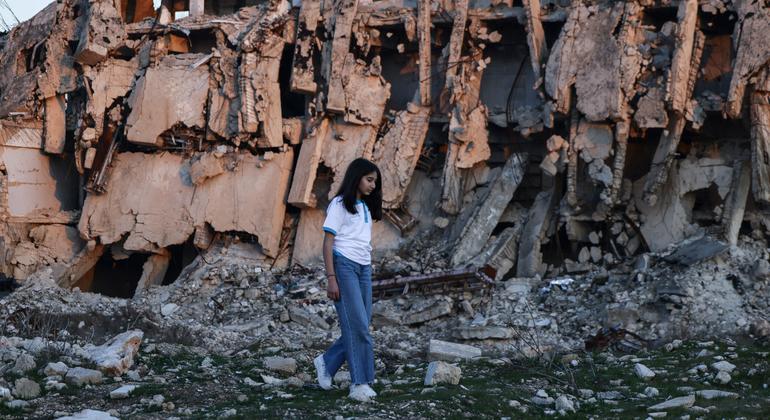Sure! Here’s the translation into American English:
—
The UN Secretary-General, António Guterres, expressed his deep concern on Wednesday over the escalating violence in Sweida, a predominantly Druze region in southern Syria, where approximately 250 deaths have been recorded, many of them civilians, alongside numerous injuries and displacements. In a statement, Guterres strongly condemned any form of violence against the civilian population, highlighting reports of arbitrary killings and acts that exacerbate sectarian tensions. This situation poses a significant obstacle to the peace and reconciliation process in a country that has endured a devastating conflict for fourteen years.
Additionally, the Secretary-General also spoke out against the airstrikes conducted by Israel in the regions of Sweida, Daraa, and in central Damascus. He urged the country to cease violations of Syrian sovereignty and to respect the 1974 Disengagement Agreement. Guterres reiterated the urgent need to de-escalate the situation and facilitate humanitarian access to the affected population.
The recent outbreak of violence began last Friday with the kidnapping of a Druze merchant on the road connecting Sweida to Damascus. In the following days, clashes erupted between pro-government Bedouin militias and Druze fighters opposing the regime, worsened by the intervention of the Syrian army. This situation generated hostilities between government troops and local militias.
Israel carried out airstrikes, arguing the need to protect the Druze community, resulting in the death of at least one person and more than twenty injuries in a bombing of the Ministry of Defense in Damascus. Despite the Syrian government announcing a ceasefire, clashes continued.
The Commission of Inquiry on Syria, established by the UN Human Rights Council, also expressed concern about the situation in Sweida, highlighting the urgent need to protect human rights. In a statement, the Commission mentioned testimonies from local residents discussing killings, kidnappings, and an increase in hate speech, also denouncing the Israeli airstrikes.
Humanitarian agencies have indicated that medical services in the region are on the brink of collapse. Markets remain closed, severely impacting access to essential services such as water, electricity, and education. UN aid operations have been disrupted due to roadblocks, although personnel are preparing to act as soon as possible.
The situation in Sweida is marked by high tension among minority groups, especially since the overthrow of former president Bashar al-Assad last December, and the subsequent establishment of a new interim government that has begun to receive international recognition.
—
Let me know if you need any further assistance!
Referrer: MiMub in Spanish










